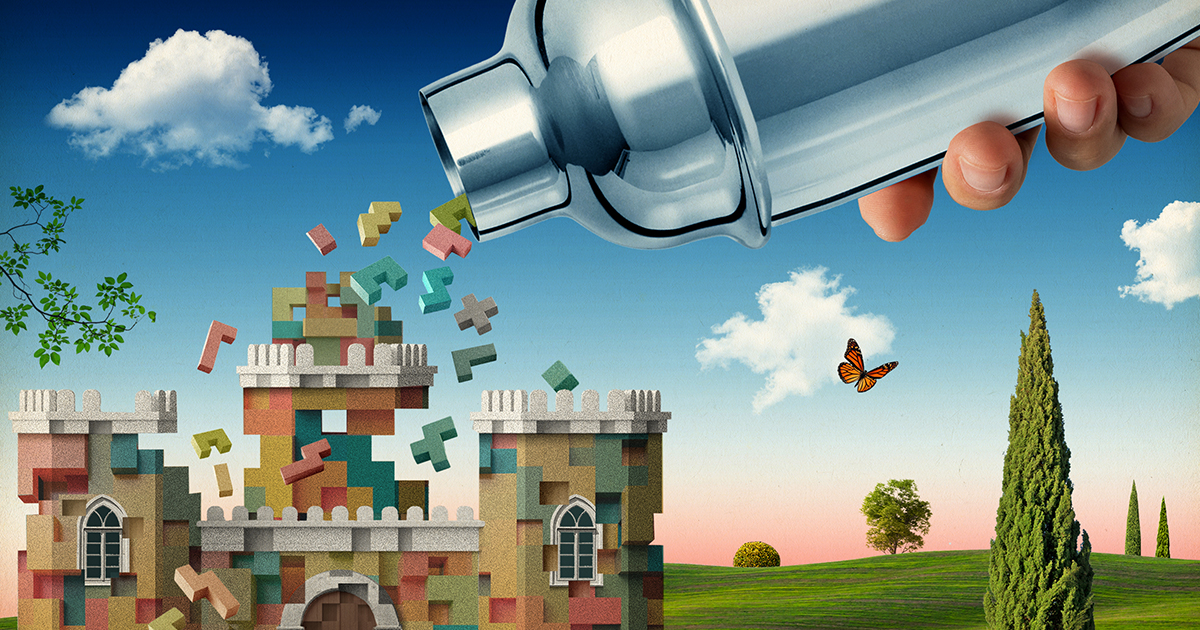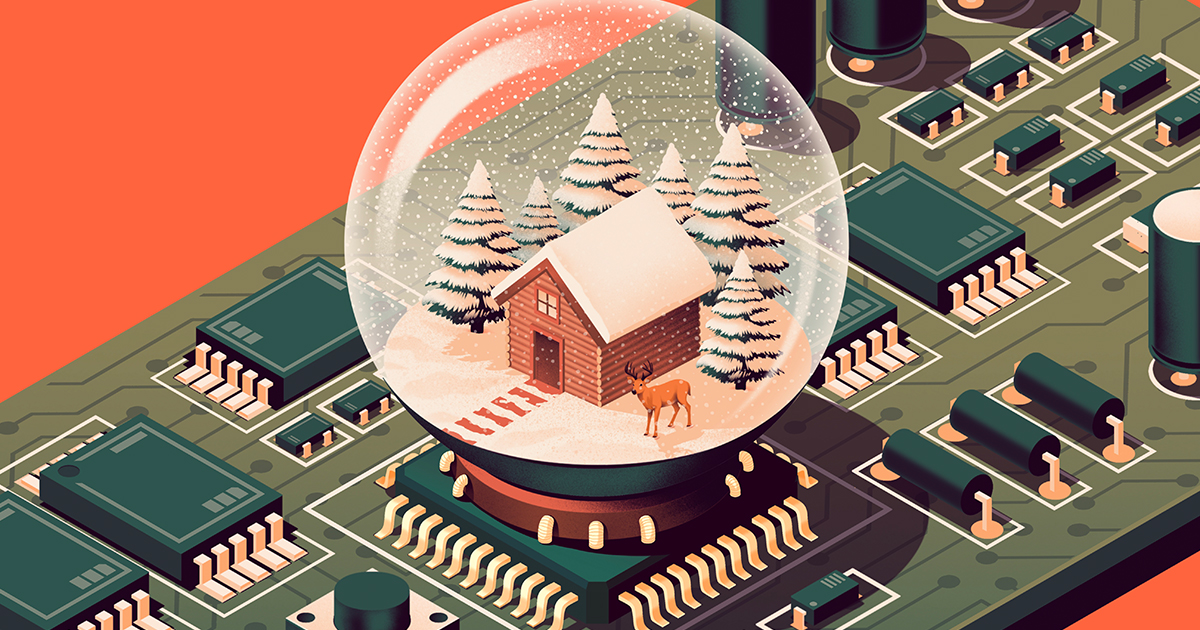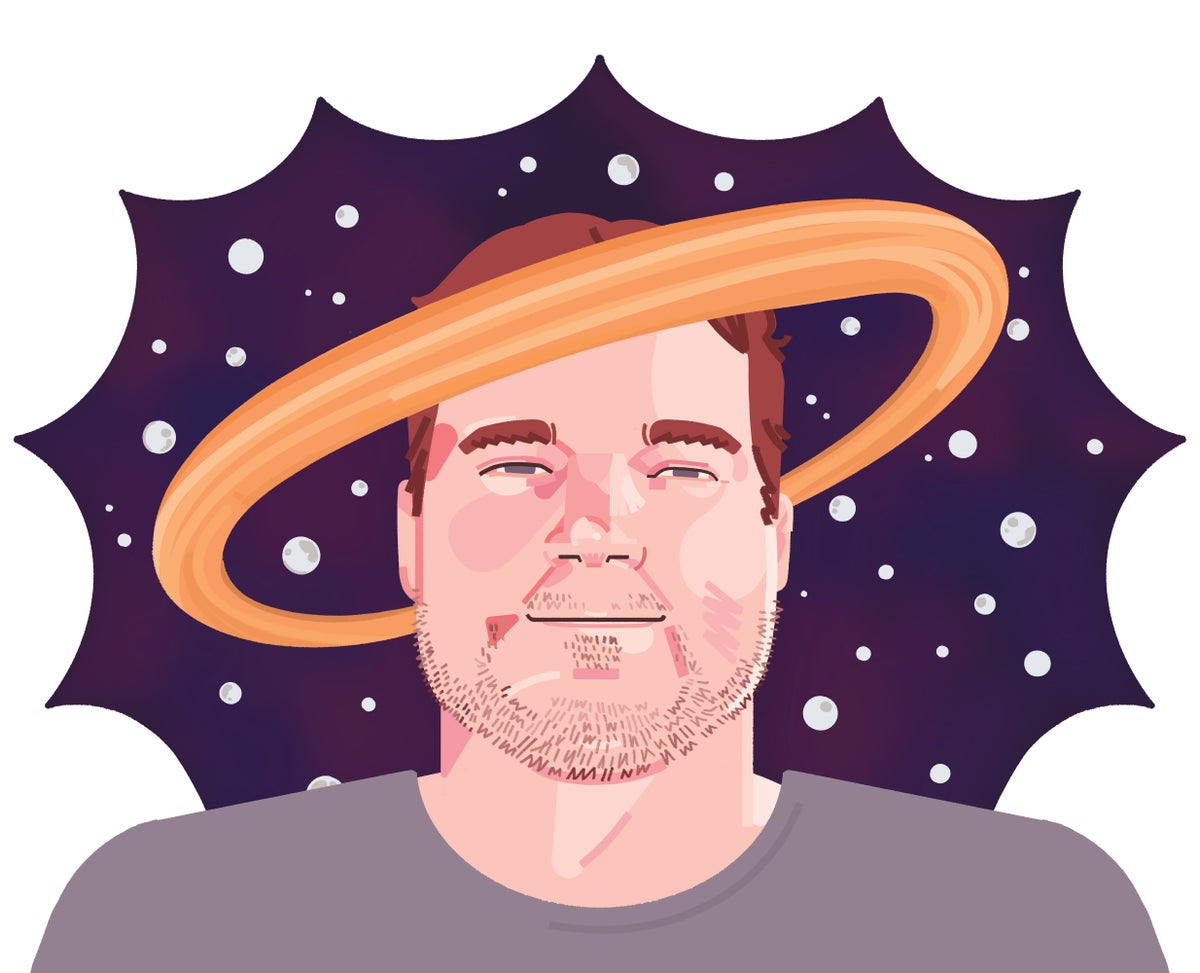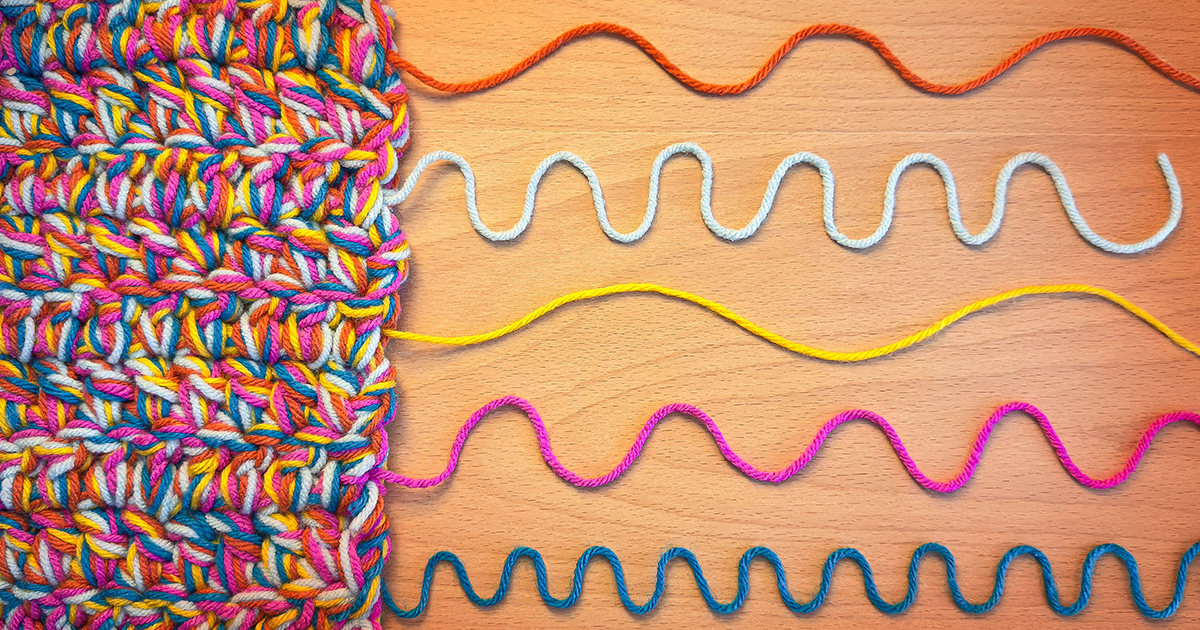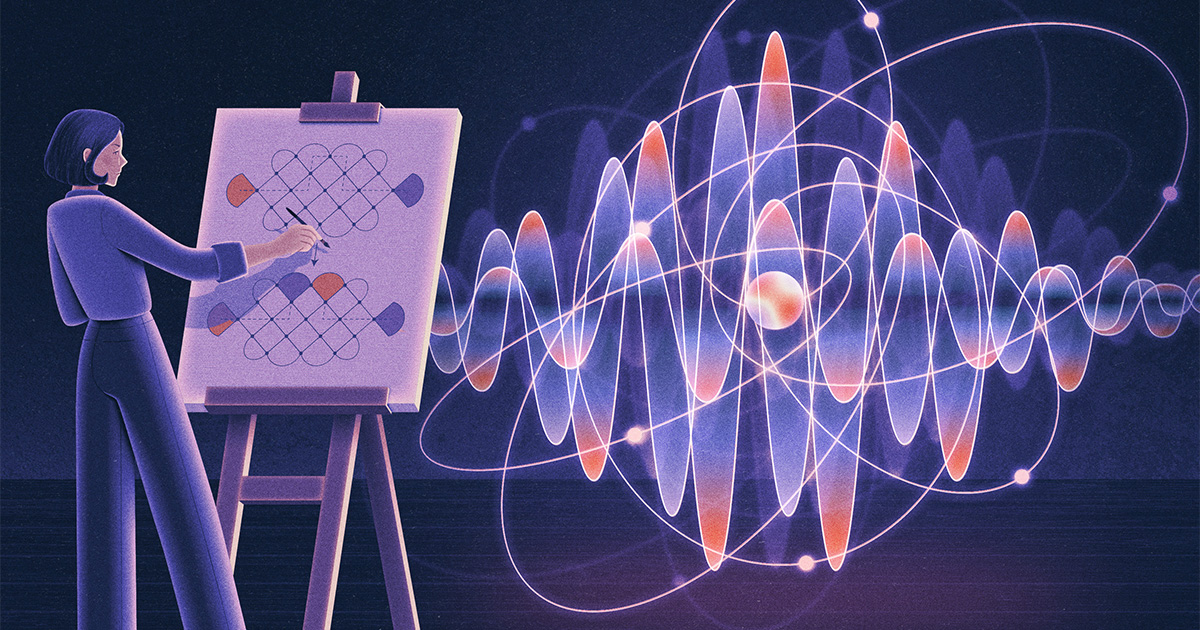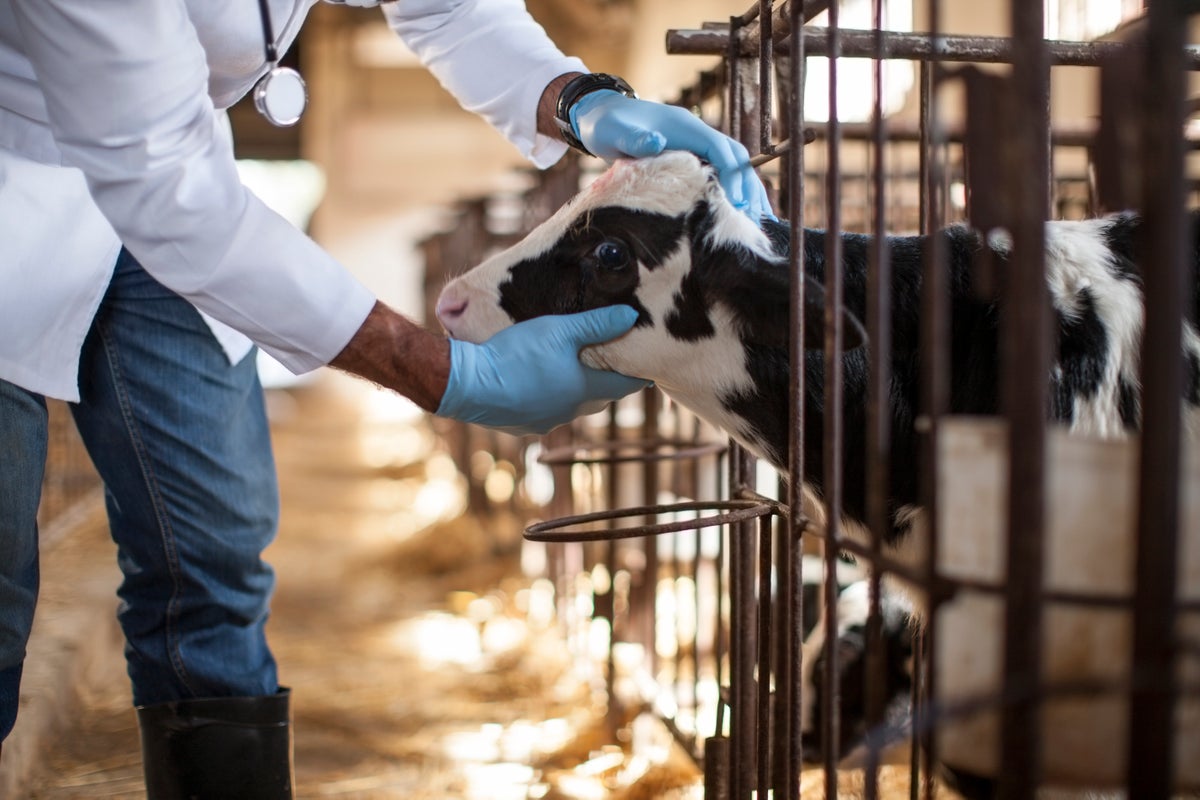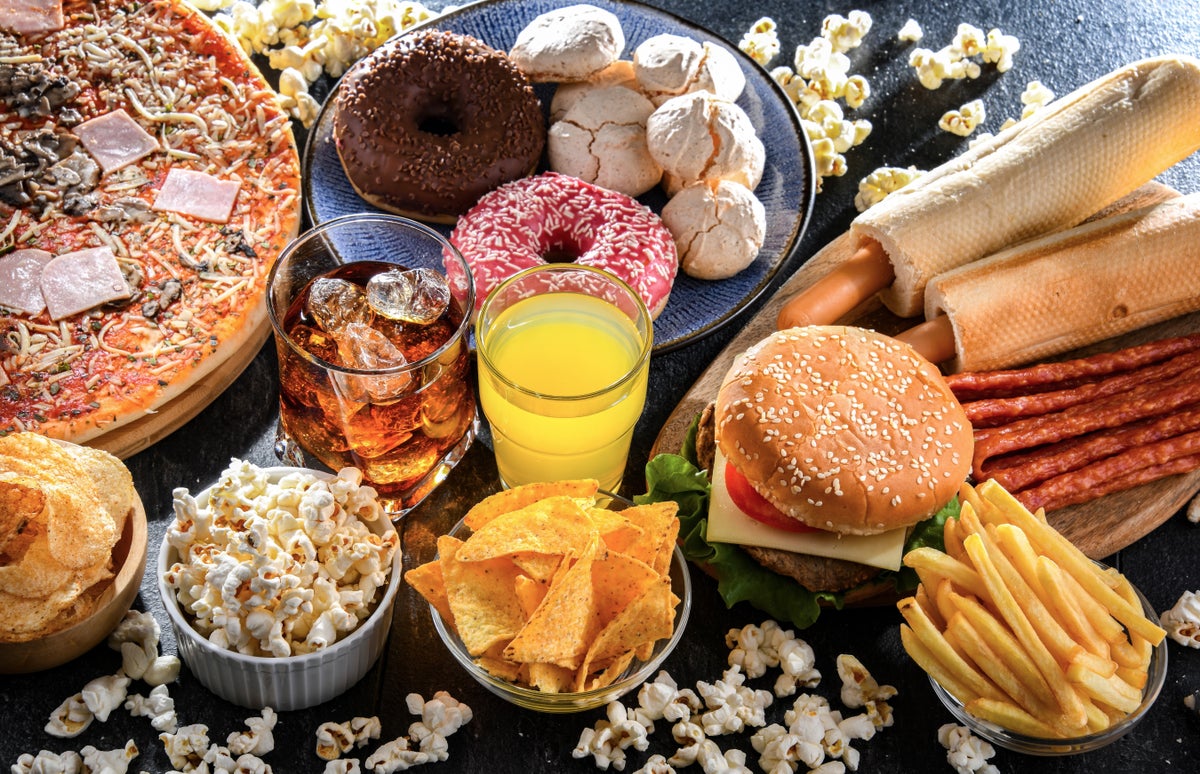Single Atom Acts as a Quantum Computer and Simulates Molecules A quantum computer has used a single atom to model the complex dynamics of organic molecules interacting with light By Davide Castelvecchi & Nature magazine A view inside the trapped-ion quantum computer that carried out a first-of-its-kind simulation of molecular chemistry. The University of Sydney/Sciencebrush.design… Continue reading A Single Atom Has Achieved a Breakthrough in Quantum Simulation
Category: Quantum Stuff
Self-Assembly Gets Automated in Reverse of ‘Game of Life’
Alexander Mordvintsev showed me two clumps of pixels on his screen. They pulsed, grew and blossomed into monarch butterflies. As the two butterflies grew, they smashed into each other, and one got the worst of it; its wing withered away. But just as it seemed like a goner, the mutilated butterfly did a kind of… Continue reading Self-Assembly Gets Automated in Reverse of ‘Game of Life’
Vitamin D May Slow Cells’ Aging by Protecting DNA
Vitamin D May Slow Cells’ Aging Vitamin D supplements may help prevent the loss of telomeres, DNA sequences that shrink with aging, a large study shows. But the health effects aren’t yet clear By Stephanie Pappas edited by Jeanna Bryner A new study suggests vitamin D supplements might slow cellular aging by protecting telomeres. Olga… Continue reading Vitamin D May Slow Cells’ Aging by Protecting DNA
‘World Models,’ an Old Idea in AI, Mount a Comeback
The latest ambition of artificial intelligence research — particularly within the labs seeking “artificial general intelligence,” or AGI — is something called a world model: a representation of the environment that an AI carries around inside itself like a computational snow globe. The AI system can use this simplified representation to evaluate predictions and decisions… Continue reading ‘World Models,’ an Old Idea in AI, Mount a Comeback
How One Astronomer Uncovered Nearly 200 Moons—Around Just One Planet
A mere decade ago astronomers knew of just 62 moons around Saturn. Today the ringed planet boasts a staggering 274 official satellites. That’s more than any other world in the solar system—and far too many for most people to keep track of. Astronomer Edward Ashton is no exception, even though he has helped discover 192… Continue reading How One Astronomer Uncovered Nearly 200 Moons—Around Just One Planet
What Is the Fourier Transform?
As we listen to a piece of music, our ears perform a calculation. The high-pitched flutter of the flute, the middle tones of the violin, and the low hum of the double bass fill the air with pressure waves of many different frequencies. When the combined sound wave descends through the ear canal and into… Continue reading What Is the Fourier Transform?
Analog vs. Digital: The Race Is On To Simulate Our Quantum Universe
Ringbauer’s team was building a quantum computer that used not qubits but qudits — each with five possible states. The extra possibilities allowed each particle to hold more information, often reducing the number of steps needed for a complex computation. Not every simulation would benefit from being run with qudits, but the complexity of quantum… Continue reading Analog vs. Digital: The Race Is On To Simulate Our Quantum Universe
Bird Flu Vaccine for Cows Passes Early Test
Bird Flu Vaccine for Cows Passes Early Test Researchers have tested an mRNA vaccine against avian influenza in calves with promising results By Humberto Basilio & Nature magazine As bird flu sweeps across US poultry and cattle farms, researchers are racing to find ways to contain the outbreaks before they ignite a human pandemic. Now,… Continue reading Bird Flu Vaccine for Cows Passes Early Test
How Much Ultraprocessed Food Do You Eat? Blood and Urine Record It
How Much Ultraprocessed Food Do You Eat? Blood and Urine Record It A new study suggests blood and urine samples could provide an objective measure of diets and help unravel their connections to disease By Smriti Mallapaty & Nature magazine Diets rich in industrially manufactured food have been associated with several health conditions. Molecules in… Continue reading How Much Ultraprocessed Food Do You Eat? Blood and Urine Record It
Disaster-Struck States Waiting for Weeks for Trump’s Sign-Off on FEMA Aid
CLIMATEWIRE | Public officials have started pleading with the Trump administration for help in recovering from deadly disasters as President Donald Trump triggers frustration in states struck by tornadoes, floods and storms by taking no action on requests for aid. Trump has left states, counties and tribes in limbo as he delays making decisions on… Continue reading Disaster-Struck States Waiting for Weeks for Trump’s Sign-Off on FEMA Aid

